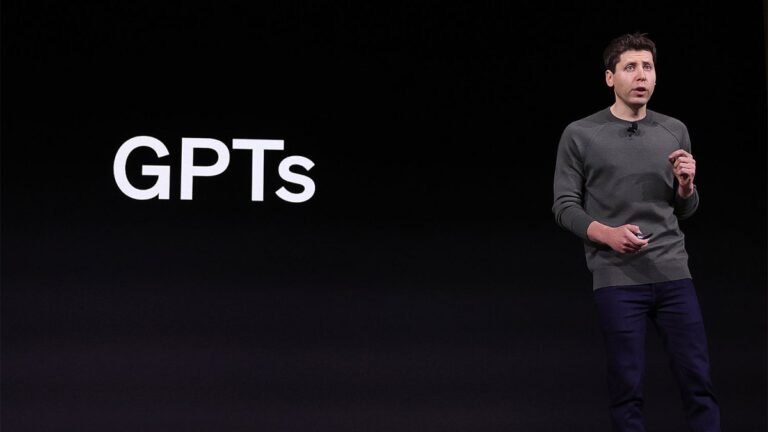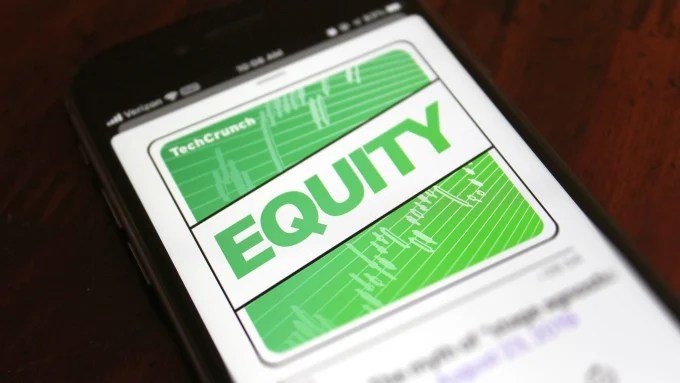
OpenAI plans to launch a store for GPTs, custom apps based on its text-generating AI models (e.g.
In an email viewed by TechCrunch, OpenAI said that developers building GPTs will have to review the company’s updated usage policies and GPT brand guidelines to ensure that their GPTs are compliant before they’re eligible for listing in the store — aptly called the GPT Store.
GPTs don’t require coding experience and can be as simple or complex as a developer wishes.
GPT Store launching next week – OpenAI pic.twitter.com/I6mkZKtgZG — Manish Singh (@refsrc) January 4, 2024Developers can simply type the capabilities they want their GPT to offer in plain language and OpenAI’s GPT-building tool, GPT Builder, will attempt to make an AI-powered chatbot to perform those.
Since shortly after DevDay, developers have been able to make and share GPTs with others via the ChatGPT website directly but not publicly list them.

The New York Times is suing OpenAI and its close collaborator (and investor), Microsoft, for allegedly violating copyright law by training generative AI models on Times’ content.
Actress Sarah Silverman joined a pair of lawsuits in July that accuse Meta and OpenAI of having “ingested” Silverman’s memoir to train their AI models.
As The Times’ complaint alludes to, generative AI models have a tendency to regurgitate training data, for example reproducing almost verbatim results from articles.
And that’s why most [lawsuits like this] will probably fail.”Some news outlets, rather than fight generative AI vendors in court, have chosen to ink licensing agreements with them.
In its complaint, The Times says that it attempted to reach a licensing arrangement with Microsoft and OpenAI in April but that talks weren’t ultimately fruitful.

Hello and welcome back to Equity, a podcast about the business of startups, where we unpack the numbers and nuance behind the headlines.
This is the second of a two-part series looking back at 2023.
Mary Ann and Alex called on two colleagues to help us chat through some of the year’s biggest events.
You can find part one of our year-end roundup here if you need even more!
And don’t forget, Equity has even more great stuff coming your way, so stick close to your favorite podcast app.

OpenAI is expanding its internal safety processes to fend off the threat of harmful AI.
In-production models are governed by a “safety systems” team; this is for, say, systematic abuses of ChatGPT that can be mitigated with API restrictions or tuning.
Frontier models in development get the “preparedness” team, which tries to identify and quantify risks before the model is released.
So, only medium and high risks are to be tolerated one way or the other.
For that reason OpenAI is making a “cross-functional Safety Advisory Group” that will sit on top of the technical side, reviewing the boffins’ reports and making recommendations inclusive of a higher vantage.

OpenAI formed the Superalignment team in July to develop ways to steer, regulate and govern “superintelligent” AI systems — that is, theoretical systems with intelligence far exceeding that of humans.
Superalignment is a bit of touchy subject within the AI research community.
“I think we’re going to reach human-level systems pretty soon, but it won’t stop there — we’re going to go right through to superhuman systems … So how do we align superhuman AI systems and make them safe?
But the approach the team’s settled on for now involves using a weaker, less-sophisticated AI model (e.g.
Well, it’s an analogy: the weak model is meant to be a stand-in for human supervisors while the strong model represents superintelligent AI.

Palace intrigue might be dominating the news cycle around OpenAI, but the AI startup — and its accelerator programs — are chugging along uninterrupted, so the PR team tells me.
OpenAI today announced the launch of Converge-2, the second cohort of its six-week Converge program for “exceptional engineers, designers, researchers, and product builders using AI to reimagine the world,” as the company describes it in a blog post published this morning.
As with members of OpenAI’s first Converge cohort, the 10-15 startups chosen to participate in Converge-2 will receive a $1 million equity investment from the OpenAI Startup Fund, the $100 million-plus entrepreneurial tranche announced last May backed by Microsoft and other OpenAI partners.
Do the math, and that’s at least a $10 million investment in the Converge-2 program — not an insubstantial chunk of change.
OpenAI is encouraging founders from all backgrounds, disciplines and experience levels to apply, including those based outside of the U.S.

OpenAI is not the only company to receive trademark applications recently. ThreatGPT, MedicalGPT, DateGPT and DirtyGPT are a mere sampling of the many outfits to apply for trademarks with the…

There is reason to be skeptical of X.ai, possibly named after Elon Musk’s latest endeavor. The company is reportedly trying to collect the money and people necessary to take on…

OpenAI’s consistency model is an exciting new development in imagegeneration. It can already do simple tasks an order of magnitude faster than the likes of DALL-E, and may have already…

At Anthropic, their aim is to not only compete with OpenAI but also outdo them in terms of size and reach. They are hoping to raise anywhere from $500 million…













